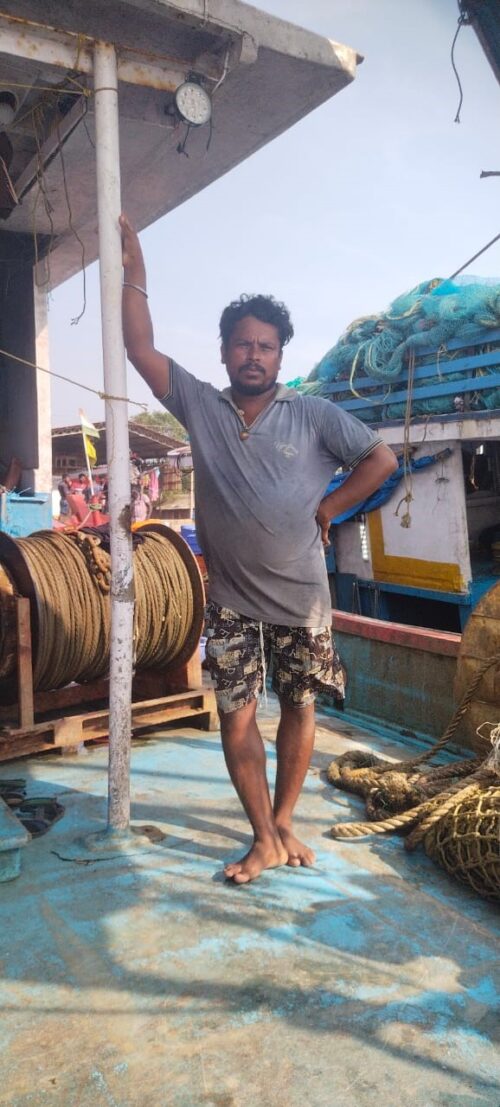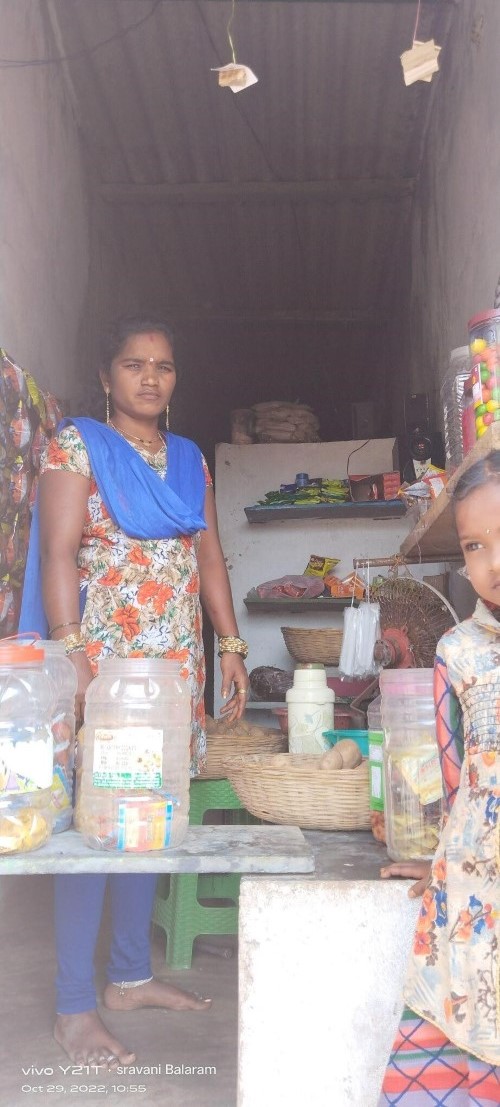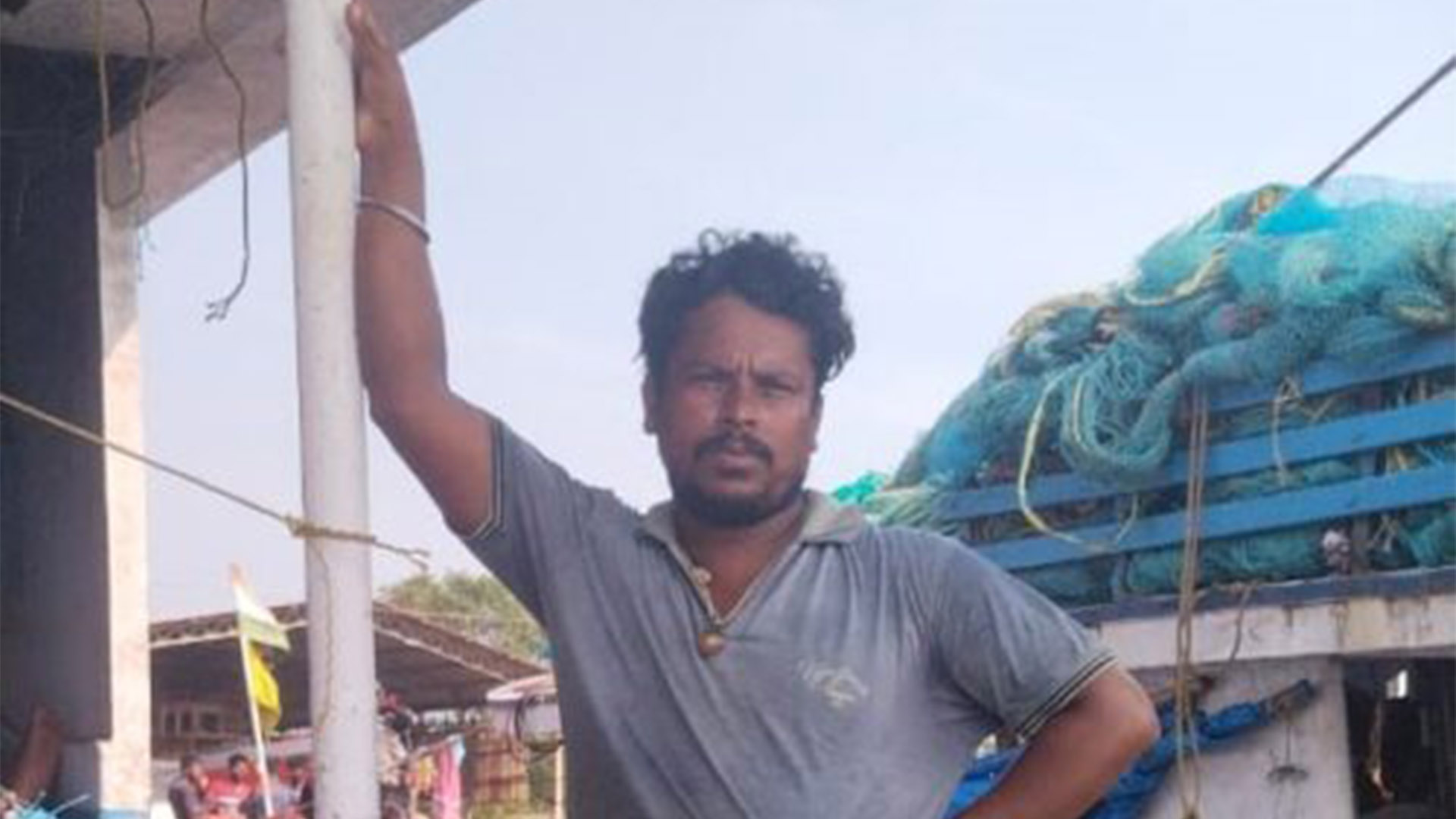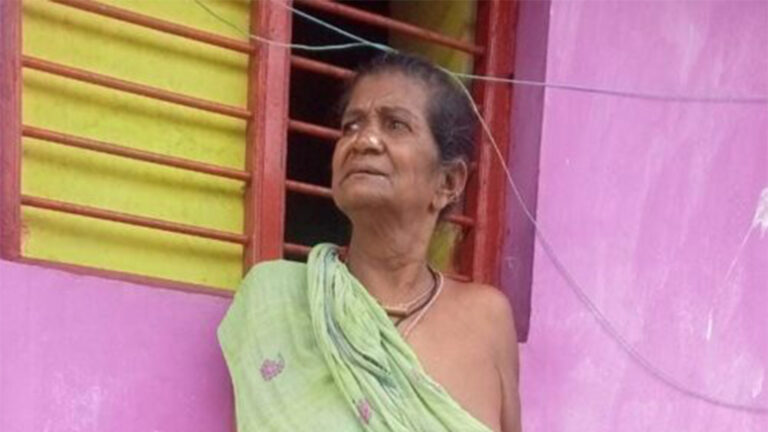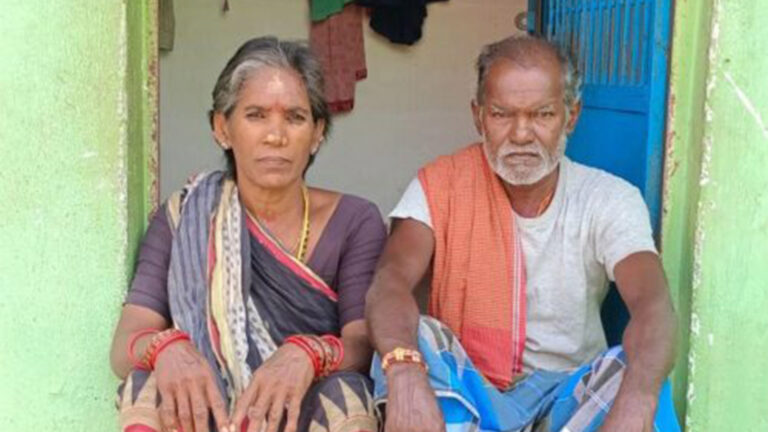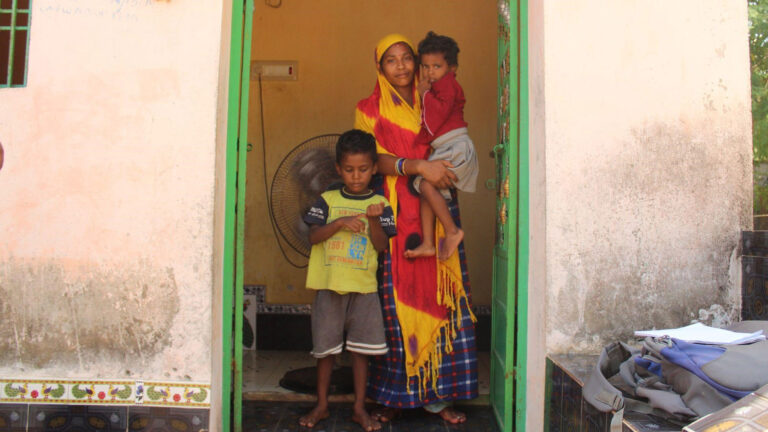As a result of spending so much time at sea, they are prone to illnesses like fever, cough and cold as well as insomnia, which in Simanchal’s case made his eyes turn red and water constantly, finally causing eye damage.
Simanchal intended to stay in Mangalore for 7-8 months, make some money fishing, and then return to his village. A group of 12-13 people goes fishing in trawlers as fisheries labor on board vessels they do not own. They often fish for 10 to 15 days, and the money they make from selling those fish is then split into two portions, half of which is given to the owner, and the other half is divided among the laborers. Simanchal makes about 20,000 rupees as his share. While they are at sea for 10 to 15 days, the trawler boat owner arranges their food and supplies. As a result of spending so much time at sea, they are prone to illnesses like fever, cough, and cold, as well as insomnia, which in Simanchal’s case made his eyes turn red and water constantly, finally causing eye damage. When the fishing crew falls ill, no one is there to look after them. If sick fish workers have to remain on shore in their lodgings owing to illness, they must shoulder the costs of paying for their own food, rations, and medical costs. To receive the right care, they have to travel far as there is no affordable hospital close to the harbor area.
This life, repeated over months each year, has a consequent impact on the migrant fisher’s income and finances. The financial difficulties caused by occasional ill health are made worse when migrant workers cannot send money to their families on time, or when fishing in the host state gets disrupted by environmental changes like cyclones, or severe rain and wind.
The shocks of the unstable work in Karnataka extend all the way to Simanchal’s family back in Bada Arjyipalli. Since he had to leave his family behind, Simanchal is constantly reminded of and concerned about them. Ambati Ankamma, his wife, has contemplated a solution to this problem of interrupted income, “Is there any way that I can do household rations, incidental expenses, and children’s education?”
Propelled by her own concern and worries about her family, Ambati Ankamma, shares, “I am facing a lot of trouble as my husband is not here. He has gone all the way to another state for the sake of his family and is facing trouble there too. So I opened a grocery shop, to support my two children.” Ambati Ankamma not only opened her own grocery store in the village, but manages to look after her two young children, and even financially supports their education. Ambatti Ankamma proved that duty and effort towards family are not only for men but also for women. Their family is running, because of migration and despite migration.
